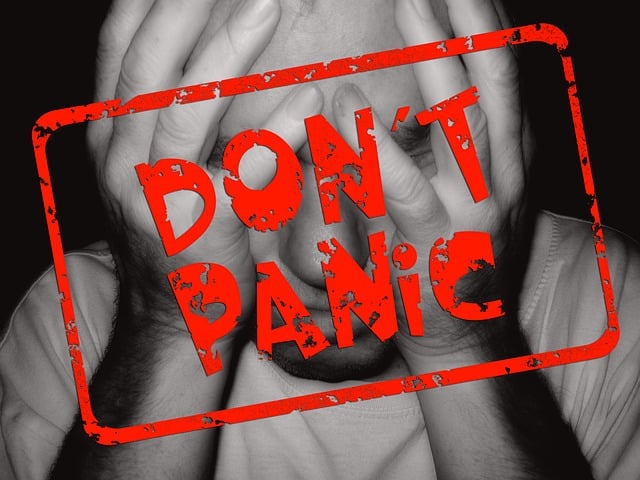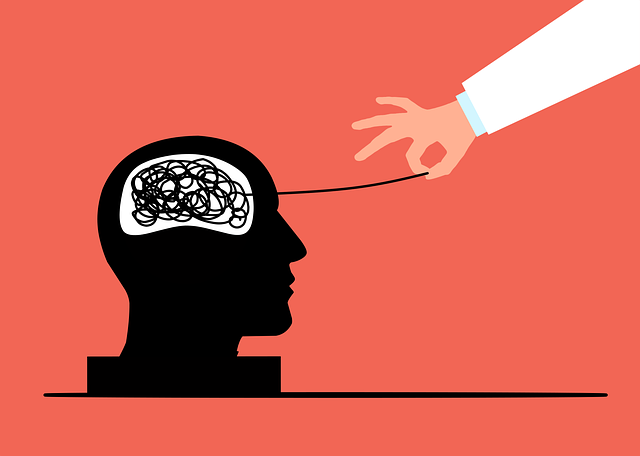Generalized Anxiety Disorder (GAD) is a common mental health condition characterized by persistent worry and physical symptoms. Effective anxiety treatment includes psychotherapy, particularly Cognitive Behavioral Therapy (CBT), which addresses negative thought patterns. Mindfulness-based therapies like Mindfulness-Based Cognitive Therapy (MBCT) and Exposure Therapy are also beneficial. Building a strong therapeutic alliance through active listening and empathy is crucial for long-term symptom management. Holistic strategies such as self-monitoring, relaxation techniques, mindfulness meditation, exercise, diet, and sleep contribute to sustained anxiety relief and improved mental well-being.
Generalized Anxiety Disorder (GAD) is a prevalent mental health condition characterized by persistent, excessive worry and fear. If left untreated, GAD can significantly impact daily life. Psychotherapy emerges as a powerful tool in the fight against this disorder, offering individuals effective strategies to manage their symptoms. This article explores various aspects of psychotherapy for GAD, from understanding the condition to specific therapy types and building a strong therapeutic relationship. Discover how these approaches empower individuals to take control of their mental well-being and embark on a path to anxiety management and improved quality of life.
Understanding Generalized Anxiety Disorder (GAD)

Generalized Anxiety Disorder (GAD) is a common mental health condition characterized by excessive, persistent worry and anxiety that significantly impacts daily functioning. Individuals with GAD often experience a wide range of physical symptoms, such as restlessness, fatigue, muscle tension, and difficulty concentrating. They may also have a hard time controlling their worries, feeling anxious about various aspects of life, including work, health, or everyday routines. This disorder can be debilitating, affecting one’s ability to relax, sleep, and engage in activities they once enjoyed.
Recognizing the symptoms early is crucial for effective anxiety treatment. GAD often presents with a sense of unease, fear, or concern that is disproportionate to the situation. People affected may constantly worry about various matters, anticipating disaster even when there’s little evidence to support these fears. Fortunately, psychotherapy, particularly cognitive-behavioral therapy (CBT), has proven highly effective in managing GAD. CBT helps individuals identify and change unhelpful thought patterns and behaviors contributing to their anxiety, empowering them with coping strategies for long-term relief.
The Role of Psychotherapy in GAD Treatment

Psychotherapy plays a pivotal role in the comprehensive treatment of Generalized Anxiety Disorder (GAD). It offers individuals affected by this condition a safe and supportive space to explore and understand their anxiety-related thoughts, feelings, and behaviors. Through various therapeutic approaches tailored to GAD, such as Cognitive Behavioral Therapy (CBT) or Acceptance and Commitment Therapy (ACT), patients learn effective coping strategies to manage their symptoms.
These evidence-based treatments empower individuals to challenge negative thought patterns, reduce avoidance behaviors, and develop healthier ways of responding to anxious triggers. By addressing the underlying causes of anxiety and providing practical tools for emotion regulation, psychotherapy enables people with GAD to lead more fulfilling lives, significantly improving their overall quality of life and well-being.
Common Psychotherapy Approaches for GAD

Anxiety treatment through psychotherapy offers a range of effective approaches tailored to Generalized Anxiety Disorder (GAD). Cognitive Behavioral Therapy (CBT) is one of the most widely recognized and successful methods. CBT helps individuals identify and challenge negative thought patterns, replacing them with more realistic and balanced perspectives. This approach teaches practical coping strategies to manage anxiety-related symptoms, such as panic attacks and excessive worry. By focusing on the connection between thoughts, feelings, and behaviors, CBT empowers patients to take control of their anxiety.
Another prominent therapy is Mindfulness-Based Cognitive Therapy (MBCT), which combines mindfulness practices with cognitive techniques. MBCT encourages individuals to observe their anxious thoughts without judgment, fostering a sense of detachment from overwhelming worries. This approach has shown promise in preventing relapse and reducing the severity of GAD symptoms. Additionally, Exposure Therapy gradually exposes patients to anxiety-provoking situations in a safe environment, helping them overcome fears and learn to manage their responses effectively. These psychotherapy methods offer personalized strategies for anxiety treatment, aiming to empower individuals with long-lasting coping mechanisms.
Cognitive Behavioral Therapy (CBT): A Step-by-Step Guide

Cognitive Behavioral Therapy (CBT) is a structured and evidence-based approach to anxiety treatment, focusing on identifying and modifying unhelpful thought patterns and behaviors. The process begins with assessing your specific worries and fears, helping you understand how they impact your daily life. Once identified, therapists will guide you through challenging these negative thoughts and beliefs, often using techniques like cognitive restructuring and behavioral activation.
In CBT, you’ll learn to replace anxious thoughts with more realistic and positive ones. For instance, if you have a fear of public speaking, your therapist might help you challenge the thought, “I’ll forget what to say and embarrass myself,” by providing evidence and logical reasoning to counter this anxiety-inducing belief. Over time, this process empowers individuals to manage their symptoms effectively, enabling them to face their fears with increased confidence.
Other Effective Therapies for Anxiety Management

In addition to psychotherapy, several other effective therapies are available for anxiety management. Cognitive Behavioral Therapy (CBT) is a widely recognized and evidence-based approach that focuses on identifying and changing negative thought patterns and behaviors contributing to anxiety. By challenging distorted thinking and learning new coping strategies, CBT helps individuals effectively manage their symptoms.
Mindfulness-Based Therapies have also gained popularity as a complementary approach to anxiety treatment. These therapies emphasize present-moment awareness and non-judgmental acceptance of thoughts and feelings. Techniques like meditation and deep breathing exercises enable individuals to develop a greater sense of calm and reduce the intensity of anxious responses.
Building a Strong Therapeutic Alliance

Building a strong therapeutic alliance is a cornerstone of effective anxiety treatment. It involves creating a safe, non-judgmental space where the client feels understood and empowered to share their experiences openly. This collaboration between therapist and client is crucial in developing coping strategies tailored to the individual’s unique needs. Through active listening, empathy, and clear communication, therapists can foster trust, encouraging clients to engage fully in the process of healing and personal growth.
In anxiety treatment, this alliance becomes a powerful tool to challenge negative thought patterns and behaviors. As the therapist-client relationship strengthens, individuals with generalized anxiety disorder (GAD) find solace in knowing they have a supportive partner navigating the complexities of their condition together. This partnership facilitates better insight into triggers, increases resilience, and ultimately paves the way for successful long-term management of GAD symptoms.
Long-Term Success and Maintenance Strategies

Anxiety treatment isn’t just about managing symptoms; it’s also about achieving long-term success and maintaining mental well-being. After completing a structured course of psychotherapy, such as Cognitive Behavioral Therapy (CBT), many individuals experience significant improvements in their anxiety levels. However, keeping those gains requires ongoing strategies. One effective approach is regular self-monitoring, where individuals track their thoughts, feelings, and triggers to identify any emerging patterns or red flags. This proactive mindset enables them to implement coping mechanisms promptly, preventing mild symptoms from escalating.
Additionally, maintaining a consistent therapy practice, even after formal sessions end, can be invaluable. Techniques learned in psychotherapy, such as relaxation exercises, mindfulness meditation, and cognitive reframing, should become integral parts of daily routines. Engaging in regular physical activity, adhering to a balanced diet, and prioritizing quality sleep also contribute to managing anxiety in the long term. These holistic strategies empower individuals to take charge of their mental health, fostering resilience and a greater sense of control over their lives.
